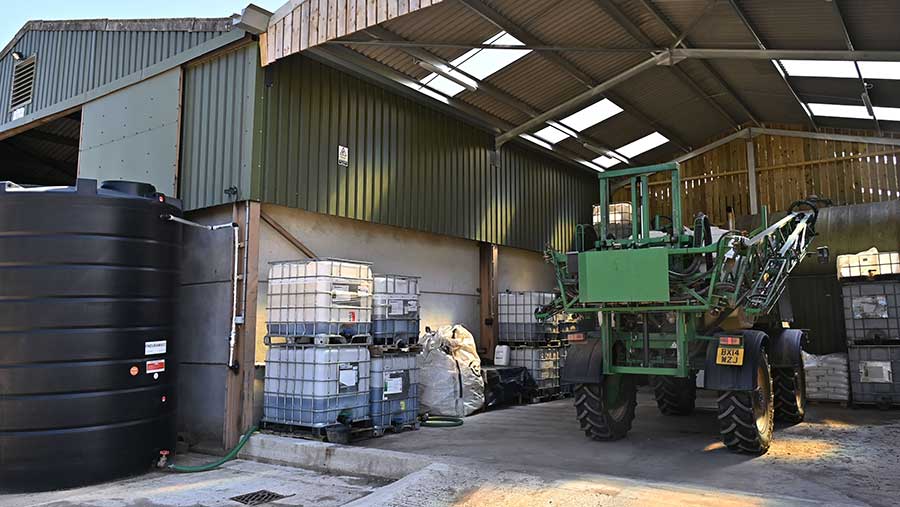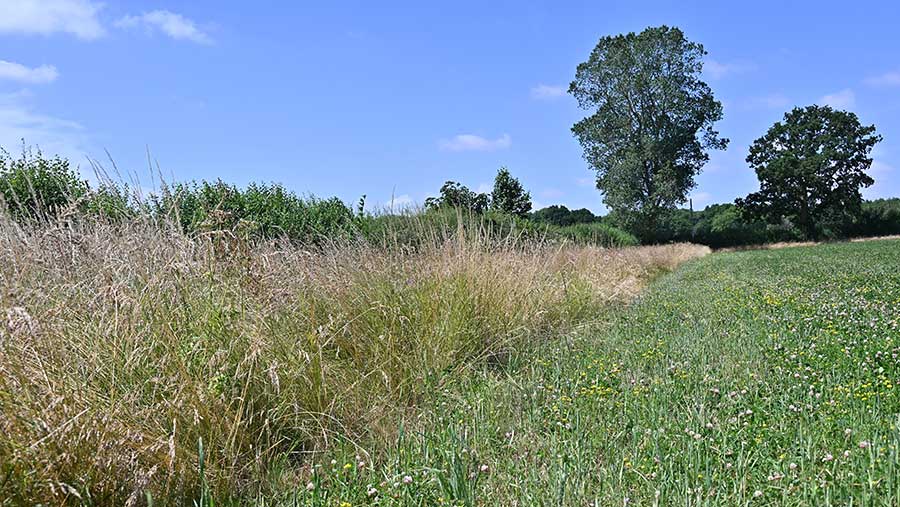Advertiser content
Applications still open for environmental funding
Provided by
Severn Trent is the UK’s second biggest water company. It serves 4.1m homes and business customers in and around the Midlands. Its region stretches from the Welsh borders to Rutland and from the outskirts of Sheffield south to the Bristol Channel and east to the Humber.
Catchment management is a key part of Severn Trent’s environmental work and involves working with farmers, landowners, businesses and charities to use and influence water in an environmentally friendly way to protect water quality at the source, rather than rely on treatment measures later in the process to becoming drinking water.
For more information see our website Severn Trent Water
With just three months left until the 31 January deadline, farmers in the Midlands are being encouraged to submit applications for this year’s Severn Trent Environmental Protection Scheme (STEPS).
This year’s STEPS programme is offering farmers up to £30,000 of match funding for farm improvements that help address water quality issues, while supporting productivity.
According to Adam Freer, senior catchment management scientist at Severn Trent, there are several new priority items on offer in this year’s scheme.
“Options include funding for pesticide washdown areas, free rainwater harvesting, soil testing for cover crop applicants in groundwater catchments, and up to 75% funding for fencing in our cryptosporidium catchments,” he says.
There are a range of other options to choose from, all designed to help protect the environment and water quality.
How the grant scheme works
“Farmers in priority catchment areas can apply for a variety of options that support infrastructure investments and land management changes,” says Dr Freer.
“These address issues such as nitrate leaching, pesticide run-off and cryptosporidium bacteria reaching watercourses.”
Depending on the priority issue in your catchment, a range of items are available as detailed below:
Pesticide catchment areas:
- Pesticide washdown and disposal areas – 50% funding up to £20,000 is available on sprayer washdown areas, on the basis that they are built in under six months, with an additional 25% funding available, up to £30,000.
- Grass margins around fields to act as a buffer
- Biobeds and biofilters to deal with spillages or drips in sprayer handling areas
- Alternative methods to control weeds in grassland
- Precision pesticide application equipment to reduce drift
Nitrate catchment areas:
- Cover crops, including under-sowing maize – 50% funding, up to £10,000, is now available for this
- Grass margins around fields to act as pesticide buffers
Cryptosporidium areas:
- Livestock fencing along water courses – up to 75% funding is now available for this
- Drinking troughs can be fully funded for providing new access to water
- Roofed livestock handling systems and manure storage areas
How to apply
1. Check your farm is in a priority catchment
- Is your farm in a priority catchment area in the Severn Trent region?
- Each of the Severn Trent surface and groundwater priority catchments are affected by a particular pollutant, such as pesticides, nitrate, or cryptosporidium.
- Visit www.stwater.co.uk/about-us/environment/working-with-farmers-and-land-managers/farming-for-water/ to check which catchment your farm is in.
2. Choose your options
- View the grant options available at www.stwater.co.uk or chat to your local agricultural advisor, who will be on hand to help and assist you in the application process.
3. Submit your application before 31 January 2023
- Go to steps.flexigrant.com/ to fill in the easy application form. We aim to notify all applicants of the outcome within six weeks.
STEPS funding supports Warwickshire farmers
Warwickshire-based farmer, Alistair McGregor, has used STEPS funding to help improve soil health and environmental biodiversity.
He has developed an integrated pest management approach involving the introduction of cover crops, herbal leys, and wildflower margins – as well as reducing pesticide usage.
This, along with transitioning to direct drilling has meant an increase in biodiversity, including the encouragement of beneficial insects.
To reduce the risk of pesticide spillage, he has also installed a pesticide washdown area through the scheme.
“Since making these changes we’ve benefited from reduced input costs, while maintaining high crop quality; all at the same time as helping to reduce the risk of pesticides leaching into watercourses,” says Mr McGregor.
Similarly, Martin Downes, another Warwickshire-based farm manager, achieved his objective of reducing pesticide run-off whilst increasing efficiency thanks to STEPS funding.
Mr Downes says: “Through the scheme, we’ve received grants for precision farming equipment, a pesticide washdown area, a biofilter and rainwater harvesting equipment.
“Schemes like these are fundamental to improving productivity while working towards wider environmental objectives. We’ve worked closely with Severn Trent for many years and will continue to do so in the future.”
For further information please visit www.stwaterco.uk/steps.



